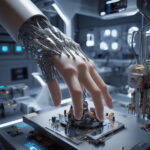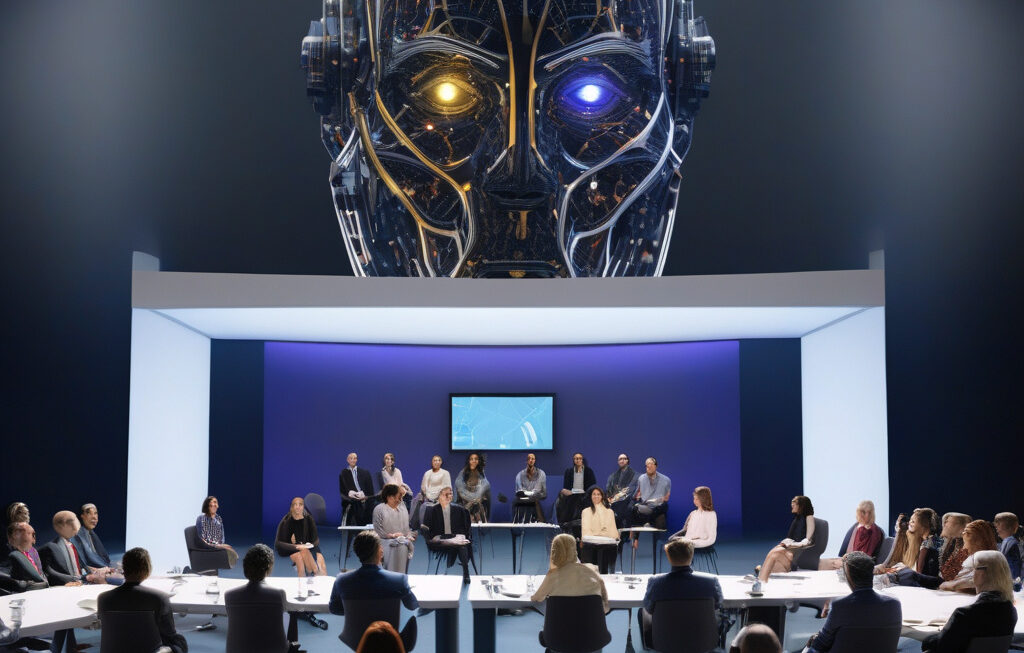Why Humans Adapt Better Than AI: The Power of Abstraction
In a world where technology is rapidly advancing, the debate over human adaptability versus artificial intelligence (AI) capabilities has become increasingly relevant. A recent study has shed light on why humans seem to have the upper hand when it comes to adapting to new and unfamiliar situations compared to AI systems. The key lies in the way humans approach problem-solving through abstraction, a concept that AI, with its reliance on statistical or rule-based methods, struggles to replicate effectively.
Abstraction is the process of focusing on essential qualities rather than specific details, allowing individuals to generalize knowledge and apply it to a variety of situations. When faced with a new challenge, humans can draw upon past experiences, extract the core principles, and use them to navigate unfamiliar territories. This ability to think conceptually and adapt on the fly is what sets humans apart from AI, which tends to rely on predefined rules or statistical patterns to make decisions.
For example, imagine a scenario where both a human and an AI system are tasked with playing a new video game they have never encountered before. The human player, drawing on their experience with other games, can quickly identify similarities in gameplay mechanics, strategize accordingly, and start playing effectively. In contrast, the AI system would need extensive data on the specific game rules and mechanics to perform well, lacking the human ability to abstract and apply general principles.
Furthermore, humans have the innate capacity to learn from their mistakes, iterate on their approaches, and continuously improve over time. This iterative learning process allows humans to adapt dynamically to changing environments and unforeseen challenges, a level of flexibility that AI, with its predetermined algorithms, often struggles to achieve.
While AI has made significant advancements in various fields, such as image recognition, natural language processing, and autonomous driving, its limitations in adapting to novel situations are evident. For instance, AI-powered systems that excel in specific tasks, such as playing chess or recognizing objects in images, often falter when faced with unstructured or evolving scenarios where abstraction and adaptability are crucial.
Understanding the fundamental differences in how humans and AI approach problem-solving sheds light on why humans have a natural edge when it comes to adapting to ever-changing environments. By leveraging the power of abstraction, humans can navigate uncertainties, innovate, and thrive in complex situations where rigid rule-based approaches fall short.
As we continue to integrate AI into various aspects of our lives, from healthcare to finance to transportation, it is essential to recognize the unique strengths that human cognition offers. While AI excels in processing vast amounts of data and performing specific tasks with precision, it is the human ability to abstract, generalize, and adapt that remains unparalleled in navigating the unpredictable and dynamic world we live in.
In conclusion, the study revealing why humans adapt better than AI underscores the importance of embracing our cognitive abilities, honing our skills in abstraction, and leveraging our innate capacity for adaptability in an increasingly AI-driven world. By understanding and capitalizing on these distinct strengths, humans can continue to excel in domains where flexibility, creativity, and rapid adaptation are paramount.
#HumanAdaptability, #ArtificialIntelligence, #AbstractionInProblemSolving, #FlexibilityInProblemSolving, #AIvsHumanAdaptability












